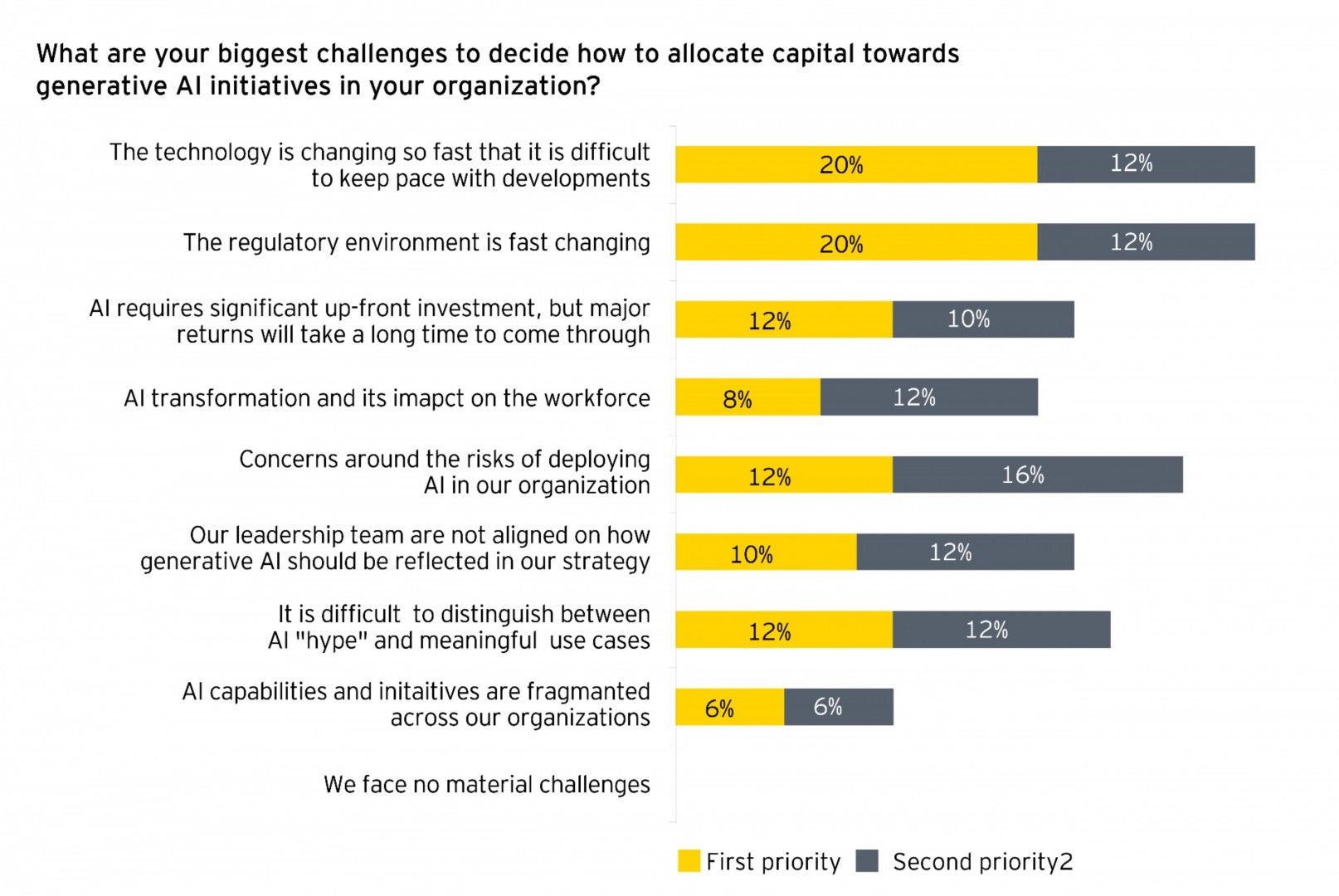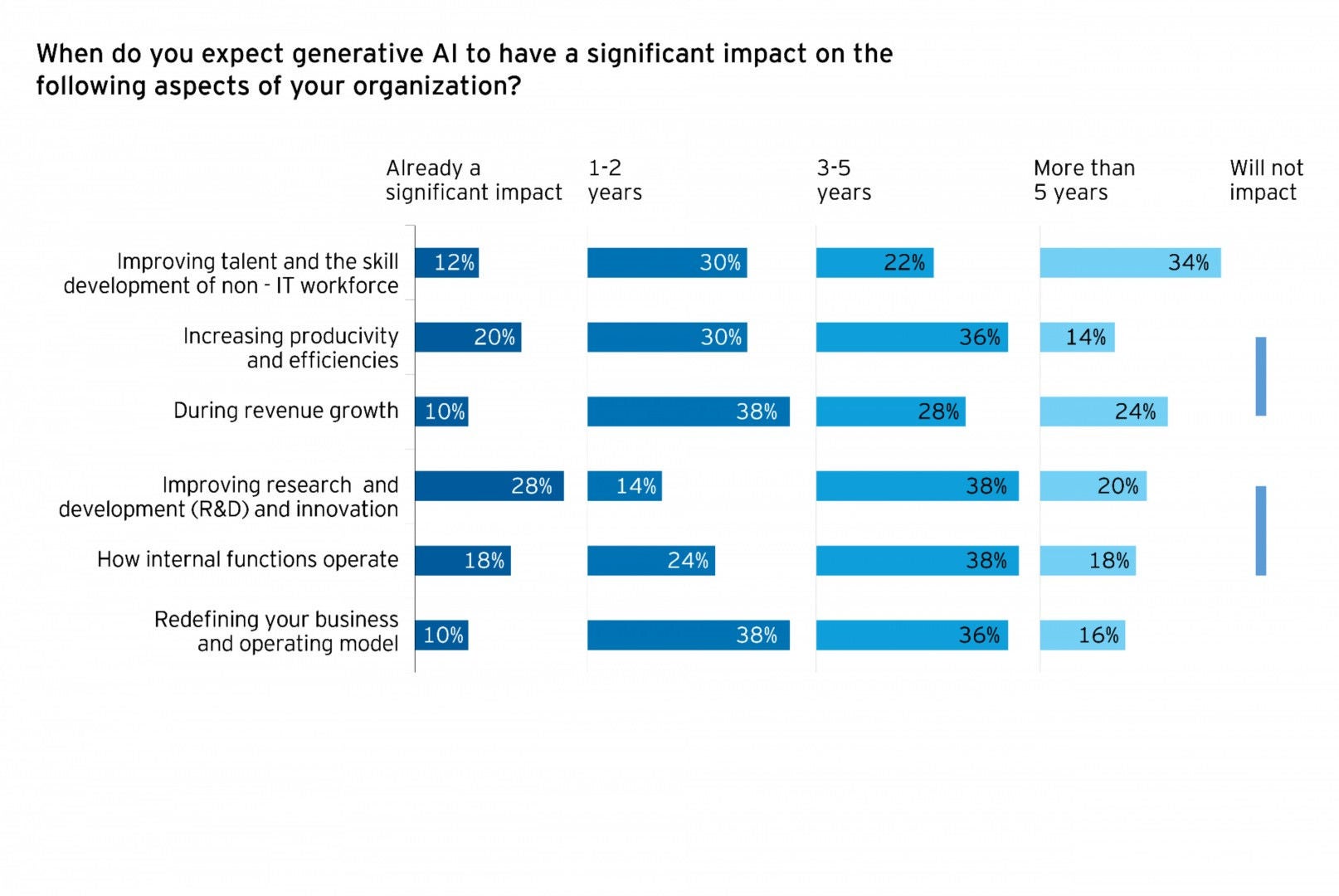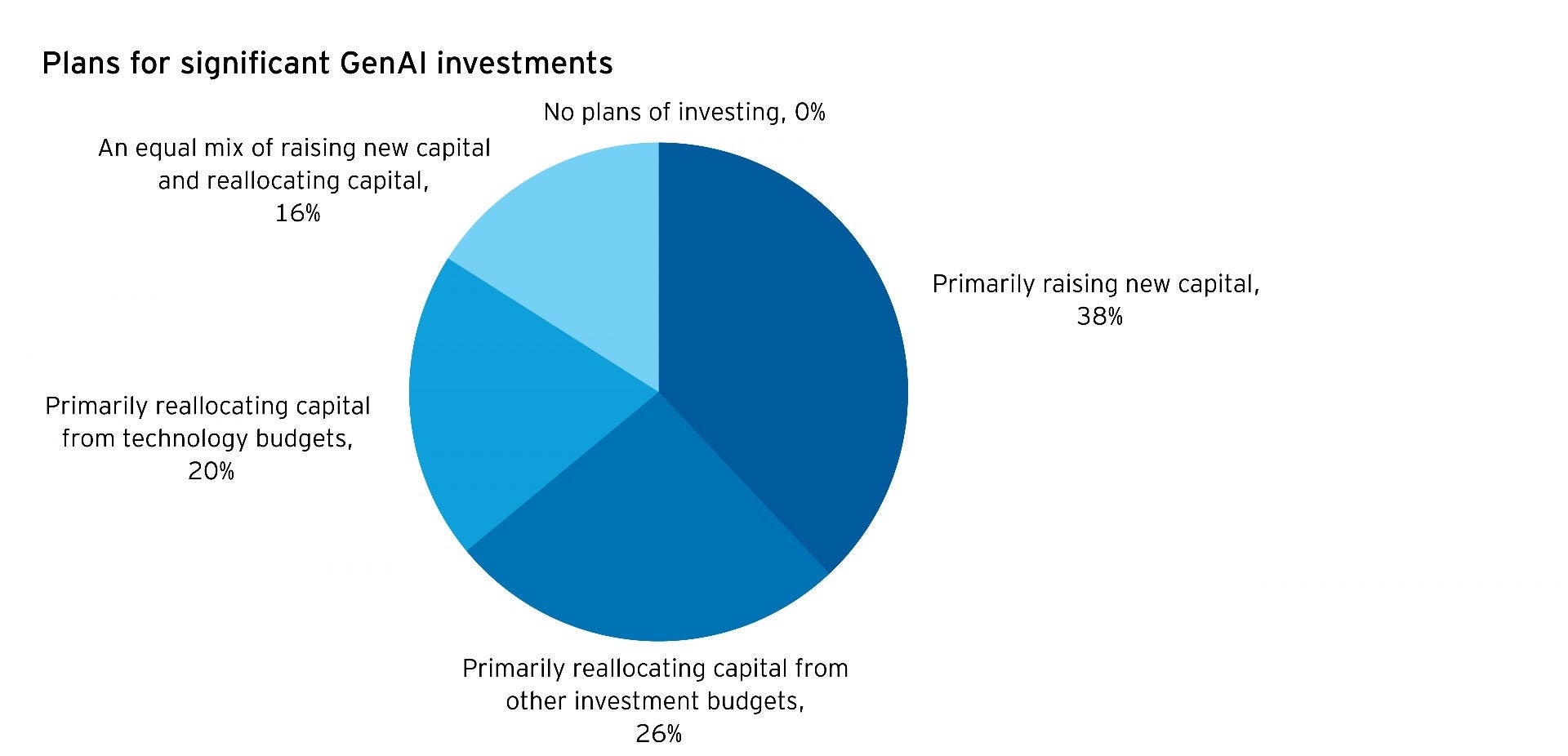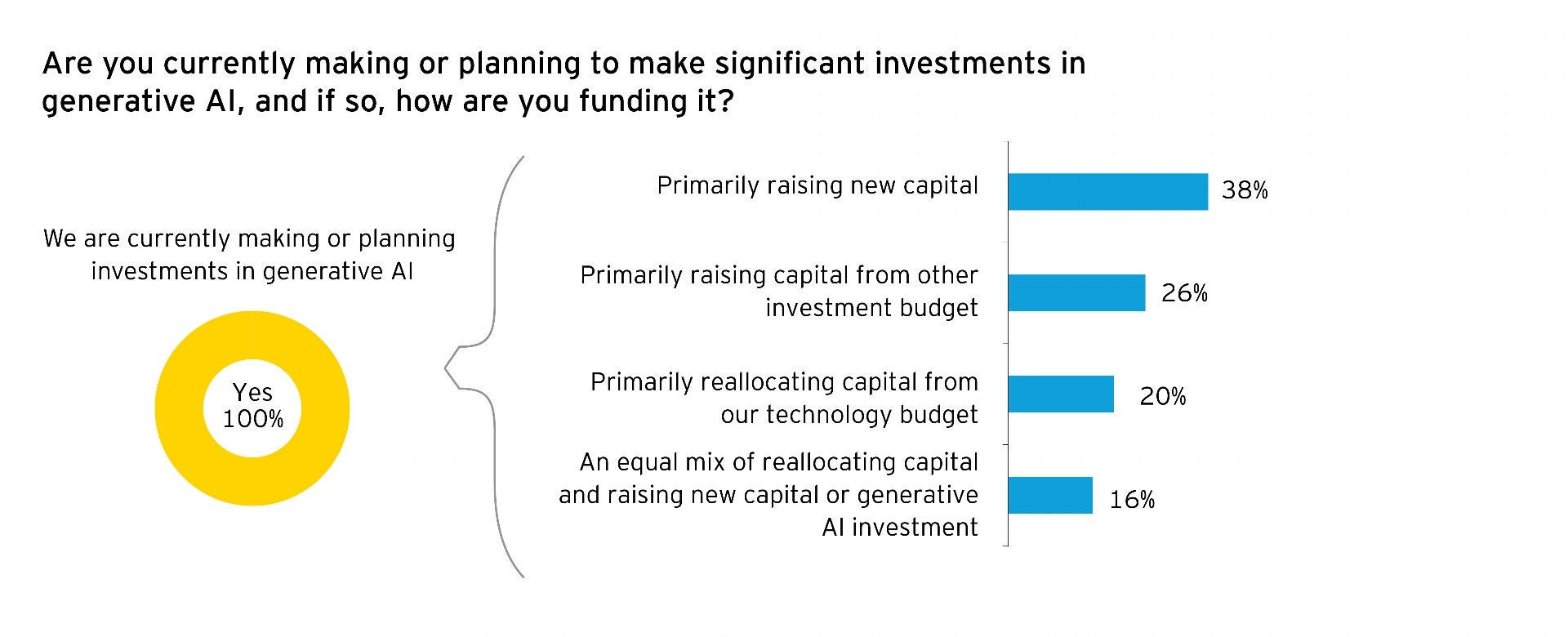EY refers to the global organization, and may refer to one or more, of the member firms of Ernst & Young Global Limited, each of which is a separate legal entity. Ernst & Young Global Limited, a UK company limited by guarantee, does not provide services to clients.
The Generative AI podcast series aims to explore the fascinating world of Generative AI Unplugged, its applications, and its impact on various industries.
Challenges for Investment and future outlook
Despite the positive outlook, CEOs acknowledge challenges in the Gen AI investment landscape. 32% of companies identify the need to keep pace with fast-moving technological developments as a significant challenge. Additionally, 30% express concerns about the rapidly changing regulatory environment, while 24% cite return on investment timing and skill set limitations as hurdles.
From unanimous enthusiasm for Gen AI to strategic capital raising and acquisition considerations, the findings underscore a transformative shift in the business scenario. As companies navigate the challenges of technological advancements, regulatory changes, and skill set requirements, the strategic focus on Generative AI positions Indian businesses at the forefront of innovation and sustainable growth.

















